Contrast: Volkswagen's U.S. Outpost Struggles As Volkswagen Canada Booms
Following 18 consecutive months of year-over-year decline, U.S. sales at the Volkswagen brand have improved in six of the last nine months.
Yet those U.S. sales improvements send up deceiving smoke signals. While Volkswagen’s volume increased 6 percent in June, for example, the brand’s 30,436-unit total represented an 18-percent drop compared with June 2013 and a 20-percent decrease compared with June 2012.
In fact, on the six occasions during the last nine months that U.S. Volkswagen-brand sales improved, sales were lower — distinctly lower – than they were at the same time two years ago. Statisticians may call it a dead-cat bounce or a return to the norm. You can call it a 3 percent year-over-year decline through the first-half of 2015 and U.S. market share of just 2 percent.
Elsewhere in North America, the story is markedly different. Volkswagen is a hugely forceful brand in Mexico, where VW’s market share through the first five months of 2015 stood at 14 percent. Across the northern border of America, Volkswagen is the fastest-growing volume brand through the halfway point of 2015. Volkswagen sales in Canada are up 21 percent so far this year, and the brand’s market share is precisely twice as strong in Canada as it is in the U.S.
Comparisons with the Mexican market are indirect at best. The product lineups don’t actually line up, for starters, and the industry is, on a per capita basis, comparatively tiny. But there are great similarities between the U.S. and Canadian markets, including the product portfolio in VW showrooms on both sides of the border.
So how does Volkswagen Canada fare so much better than Volkswagen of America? Ignoring the obvious themes of pricing schemes, general acceptance in the populace, and demand for diesel ( topics we’ve touched on in the past), consider the achievements of specific vehicles which now propel VW Canada to new heights and fail to do anything of the sort for VW USA.
The Jetta, Golf, and Tiguan produce 84 percent of Volkswagen’s sales in Canada. In the U.S., that figure is 20 points lower, and the Tiguan is barely Volkswagen’s fourth-best-selling model.
Keep in mind that the U.S. new vehicle market is nine times larger, as is the SUV/crossover market, but the U.S. passenger car market is nearly eleven times larger than Canada’s.
THE JETTA
A total of 15,053 Jettas have been sold in Canada so far this year. Jetta sedan sales in the U.S. are 4.3 times stronger at 64,578 units. (Volkswagen USA has also sold 2,440 Jetta SportWagens as the wagon transitions to the Golf family, a nameplate it already wore in Canada.) Jetta sedan sales in the U.S. are down 2 percent after rising 0.1 percent in 2014, falling 4 percent in 2013 and 3 percent in 2012. In Canada, 2014’s record-setting performance marked the Jetta’s fifth consecutive year sales improvement.
THE GOLF
Only 2.5 percent of the new cars sold in the United States are Jettas and Golfs. The same two cars produce 6.7 percent of the Canadian car market, more than any other car save for the Honda Civic, Canada’s best-selling car in each of the last 17 years, and the Toyota Corolla. Volkswagen USA only sells around 3,240 non-GTI Golfs per month. In the much smaller Canadian market, that figure falls just 54 percent.
THE TIGUAN
In Canada, the Tiguan’s share of the SUV/crossover market is nearly four times stronger than it is south of the border. Tiguan sales have increased in Canada in each of the last three years, reaching an all-time high of 10,096 units in 2014. 5,613 have been sold in the first-half of 2015, a 10-percent increase compared with the first six months of 2014. The Tiguan is Canada’s 15th-best-selling utility vehicle through the first-half of 2015; it ranks 51st in the United States.
THE OTHER STUFF
Passat/CC sales are 14 times stronger in the U.S. than in Canada, but the U.S. midsize car market is actually 20 times the size of Canada’s.
Touareg sales are only three times stronger in the U.S.
Timothy Cain is the founder of GoodCarBadCar.net, which obsesses over the free and frequent publication of U.S. and Canadian auto sales figures. Follow on Twitter @goodcarbadcar and on Facebook.
More by Timothy Cain
Latest Car Reviews
Read moreLatest Product Reviews
Read moreRecent Comments
- CanadaCraig 'Afraid' is the wrong word. The question should be, "Do you trust autonomous cars to get you from point A to point B and all points in between safely?" And my answer to that question is 'NO'.
- Bd2 Such practices are deeply frowned upon by Kia and Hyundai dealerships where consumers sport increasing credit scores and household incomes to boot.
- Mike Beranek A driver's seat that delivers a 10,000 volt shock whenever the driver makes a turn or changes lanes without signalling.
- Wolfwagen How about some standardization of wiper controls? I have 5 different cars in my family's fleet and have driven a ton of rentals for work. Holy F*cking Sh*t Balls! Left side, right side, push the lever up to turn on, push the lever down to turn on, push the lever forward to turn on, pull the lever back to turn, slide indicator to the left to decrease intermittent wipe time, slide indicator to the right to decrease intermittent wiper time.
- Redapple2 Someone else said it. Looks like a 4/5 size ford edge (front and back)



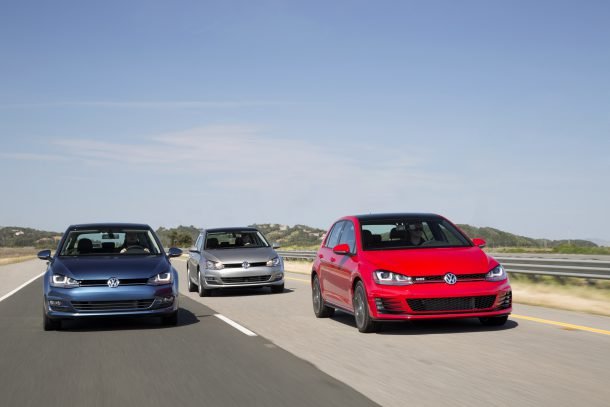
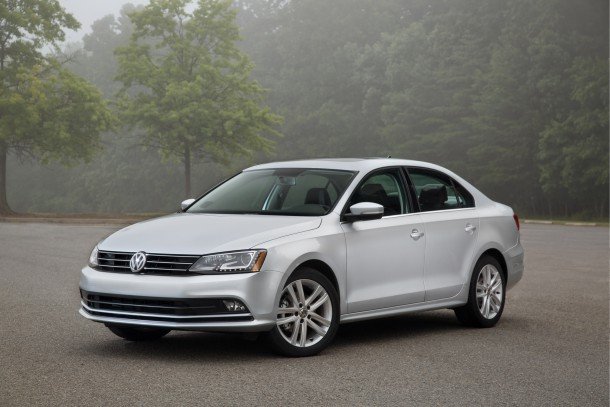
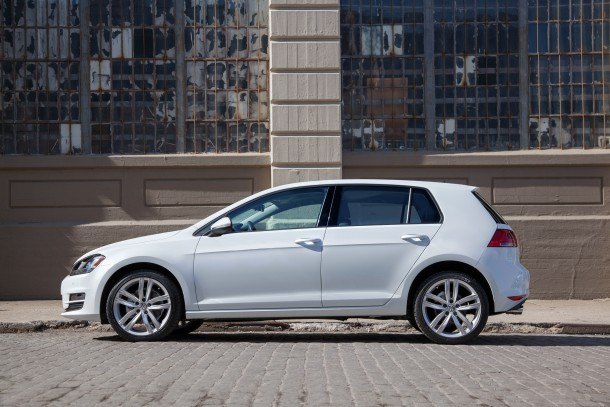















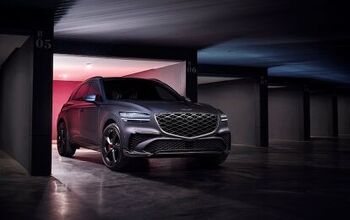






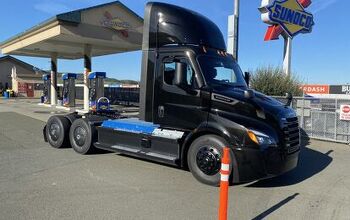







Comments
Join the conversation
VW offers some very aggressive prices in Canada vs. the US. The cheapest Jetta in Canada goes for only $14,990, vs. over 17k in the US. Of course the el-cheapo "Trendline" Jetta is really low on content, but Canadians do seem to appreciate a cheap car more than most Americans do.
There are probably a number of factors at work. High Canadian gas prices make the diesel option attractive (currently diesel is 10 cents cheaper per litre than regular in Vancouver). Why VW doesn't offer the Tiguan with diesel is beyong me. As pointed out VW has a euro chachet in Canada. Especially many Chinese immigrants who would like a BMW will buy a VW as an acceptable downmarket alternative, which they wouldn't do with a KIA. For millenials there's the cool factor: a Golf is cool, a Corolla isn't.